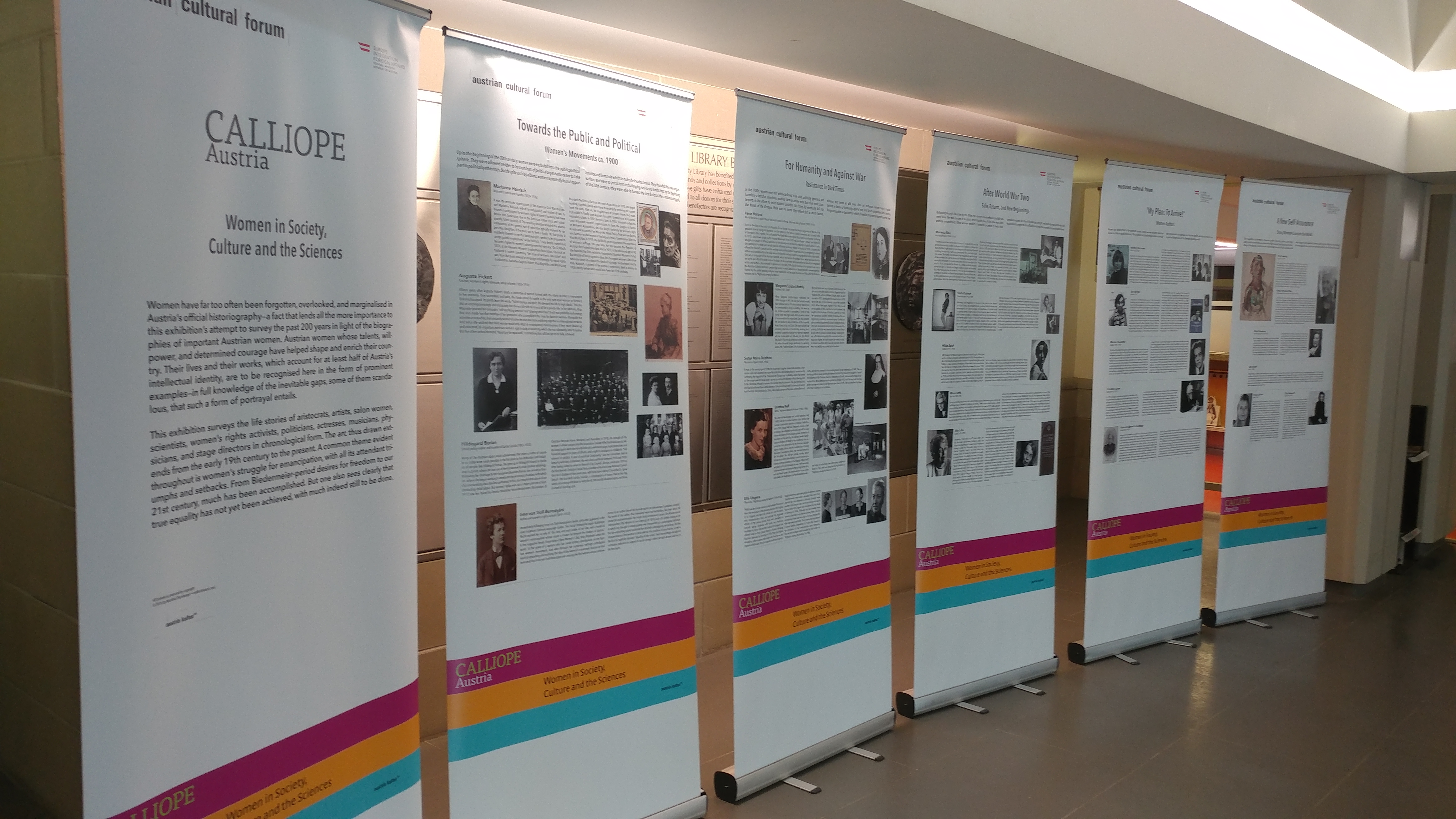CALLIOPE Austria Exhibit: Women in Society, Culture and the Sciences
This travelling exhibit, created by the Austrian Federal Ministry for Europe, Integration and Foreign Affairs (BMEIA) and hosted by McMaster’s Office of International Affairs, showcases an impressive collection of outstanding Austrian women, from the 18th century through to the present day, who have left their mark on Austria and helped shape history.
The exhibit, with its portraits and biographies, acts as a reminder of how influential Austrian women, including the likes of Bertha von Suttner, Lise Meitner, Elfriede Jelinek and Hedy Lamarr, each made a lasting contribution to the empowerment of women in Austria and worldwide.
This exhibit will be on display until Thursday, September 13 and can be found in the lobbies of Mills and Thode Libraries.

About CALLIOPE Austria Exhibit: Women in Society, Culture and the Sciences:
Women have far too often been forgotten, overlooked, and marginalized in Austria’s official historiography—a fact that lends all the more importance to this exhibition’s attempt to survey the past 200 years in light of the biographies of important Austrian women. Austrian women whose talents, willpower, and determined courage have helped shape and enrich their country. Their lives and their works, which account for at least half of Austria’s intellectual identity, are to be recognised here in the form of prominent examples—in full knowledge of the inevitable gaps, some of them scandalous, that such a form of portrayal entails.
This exhibition surveys the life stories of aristocrats, artists, salon women, scientists, women’s rights activists, politicians, actresses, musicians, physicians, and stage directors in chronological form. The arc thus drawn extends from the early 19th century to the present. A common theme evident throughout is women’s struggle for emancipation, with all its attendant triumphs and setbacks. From Biedermeier-period desires for freedom to our 21st century, much has been accomplished. But one also sees clearly that true equality has not yet been achieved, with much indeed still to be done.

